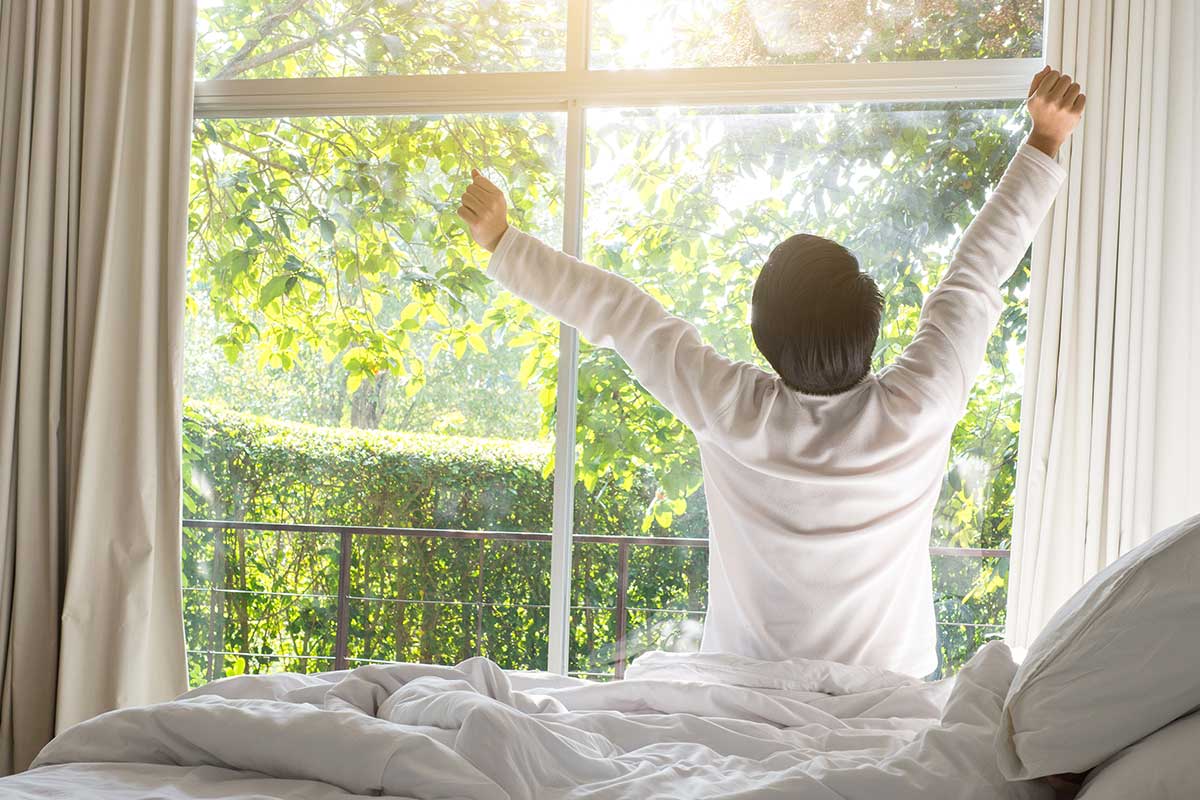OK, not everyone’s a fan of goofy rhymes, but think of all the heroes who are admired for their savvy strategies. James Bond? Check. MacGyver? For sure. Hannibal from the A-Team? He popularized the catchphrase: “I love it when a plan comes together.”
While these fictional plans tend to involve jetpacks, TNT, or catapults made out of duct tape, having a plan for the things you do every day can be just as awesome. (If you already use a jetpack every day, well played!)
And if there’s one thing you do every day, it’s SLEEP. According to Statistics Canada, most adults need somewhere between seven and nine hours of sleep every night to feel refreshed. Get the sleep you need, and so many everyday things get better: your mental sharpness, memory, mood and self-control. As a bonus, a host of health risks caused by lack of sleep are reduced: heart disease, stroke, type 2 diabetes, arthritis, and premature aging.
Think sleep is all about being lazy? Think again!
Signs you need more sleep
If you already get the sleep you need to feel refreshed, then like those jetpack users, we salute you! On the other hand, you may not be getting enough Zs if any of these signs sound familiar:
- You need an alarm clock to wake up.
- You have trouble getting out of bed in the morning.
- You feel tired during the day.
- You have bags or dark circles under your eyes.
- You doze off while sitting in a public place, such as in a meeting or a bus.
- You get drowsy while driving (or using a jetpack).
- You have trouble concentrating.
- You have early morning headaches.
A quarter of Canadian men (Stats Can, from archived material, not recently updated) report problems falling or staying asleep, so these symptoms are clearly widespread. The good news: sleep plans are here to help!
How a Sleep Plan comes together
Wondering how to make a sleep plan? It actually starts the moment you wake up and continues right through until bedtime. Plus, many parts of this plan can benefit your health in other ways. Here’s the daily play-by-play.
Waking up: Arising at the same time every morning leads to improved sleep. There’s some wiggle room on weekends and days off, but consistency is key.
The morning commute: Burning off energy throughout the day helps you sleep, so work in some easy exercise by getting off the bus a couple of stops early, or parking in a more distant lot than usual, and walking the rest of the way to work. Then, when you get there, take the stairs instead of the elevator. Do the math: solid sleep + more exercise = better health overall!
Noon: Steer clear of coffee, tea, energy drinks, and other caffeine-rich beverages for the rest of the day, as they can wreck your sleep patterns.
Afternoon: Be sure to drink plenty of water throughout the day to avoid feeling thirsty when it’s time to sleep. After all, drinking too much water right before bed will have you up to use the bathroom during the night, disrupting your sleep. Drinking the recommended six large glasses of water every day is also a prime example of a sleep plan’s other health benefits, as it can help boost your energy, maintain normal bodily functions such as blood circulation, food digestion, and joint lubrication, and reduces the risk of heart disease, stroke, liver disease, and even type 2 diabetes among adults.
Dinner time: Eating heavily spiced food, or even a heavy meal, can disturb sleep. So, lighten up by checking out these delicious and easy-to-make recipes that are not only tasty but also good for you.
After dinner: Keep alcohol to a minimum, as its sedative effects can actually thwart your plan for a good night’s sleep.
Down time: Include changing your sheets and tidying the bedroom in your evening chores, as a clean sleeping space helps induce slumber.
Just before bed: Drop the thermostat. The bedroom should be cooler than the rest of your home, about 15-18 degrees Celsius. You’ll sleep better, and save money too! Then lower the blinds. The human body is programmed to wake when it’s light and sleep when it’s dark. Keep the bedroom dark and cover the bright lights of any electronics.
Bedtime: Again, try to turn in at around the same time every night. And be sure to ban the TV, smartphone and computer from the bedroom, as these devices are stimulating. Read a book or magazine instead and remember that your bed is meant for two things: sleep and sex.
Now, cue the theme from the A-Team! Da, da-daaaa…da-da-daaaaa!

Men’s Health Checklist
Find out what tests you need and when. Stay up-to-date on screening, exams and vaccines, and assess how stress impacts your mental health.


Let’s Talk!
Did you enjoy this article? Let us know in the comments.
0 Comments